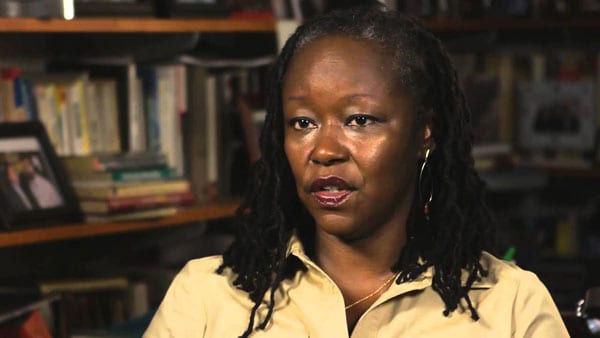
February 25, 2019; Columbia Spectator
It took “decades of activism,” but, as Shubham Saharan and Madison Andrus write in the Columbia Spectator, “Columbia approved its first African American and African Diaspora studies department last fall.”
In fact, the struggle dates back to the 1960s. In that decade, Saharan and Andrus note, “The number of students looking to pursue African-American studies as a major grew significantly…but Columbia quickly fell behind peer institutions by failing to create a department that could meet the demand for courses.” Progress was made in 1993, when the Institute for Research in African-American Studies (IRAAS) at Columbia formed under Manning Marable, a “first step in centralizing the interdisciplinary teachings of African American and African Diaspora studies.” But it would still be another 25 years before an academic department would be formed. (By contrast, Harvard’s department of African and African-American Studies was founded in 1969.)
“The need for a department truly came to light in response to an increasingly contentious national political climate in the mid-2010s,” according to four key scholars who helped lead the effort that finally led to the department’s formation. These scholars are Farah Griffin, a literature scholar who came to Columbia in the 1990s, recruited by Marable, and who is now the new department’s chair; Mabel Wilson, who teaches architecture and co-directs the Global Africa Lab; Josef Sorett, a religious studies scholar and director of the Center on African-American Religion, Sexual Politics and Social Justice; and Frank Guridy, a sports historian who, prior to coming to Columbia, was a member of the department for African and African Diaspora studies at the University of Texas, Austin.
Guridy observes that “the Black Lives Matter movement and its manifestations around here played a role” in moving Columbia to finally move toward creating an academic department, as “something had to be done institutionally in response.” For Wilson, the election of Donald Trump as president was a galvanizing event. As Wilson explains, Trump’s election shows how deeply white supremacy is “ingrained in the DNA of the nation, and understanding that from many perspectives disciplinarily, and training people to do that work, and opening people’s eyes and creating that consciousness requires a kind of consolidation and framework of a department to have a space to initiate those kinds of conversations.”
Sign up for our free newsletters
Subscribe to NPQ's newsletters to have our top stories delivered directly to your inbox.
By signing up, you agree to our privacy policy and terms of use, and to receive messages from NPQ and our partners.
Griffin notes, “It is meaningful that the department emerges at a time when in many ways our country seems to be going backward. The study of African American studies and African Diaspora studies represent a kind of beacon that [shows] one, dark times don’t always last if people work to change them, and that two, there is an alternative way—there is another world worth fighting for.” Griffin stressed how the election also pointed to questions that scholars and activists noted long before the 2016 election.
On September 28, 2018, the University Senate unanimously voted in favor of establishing a department of African American and African Diaspora studies. Griffin notes that the vote to create the department “was an extraordinary moment for me. By the time it got to the Senate, I felt like I had that support….It was a culmination of what felt like a very long journey.”
Griffin adds that, “The other thing incredibly meaningful to me [about the Senate meeting] is that it took place in the Forum on 125th Street. 125th Street in Harlem is very special to me personally, but also to the study of black life in America, because it is one of the capitals of the African diaspora. These are the streets W. E. B. Du Bois walked, and where some of our greatest intellectual heroes, James Baldwin and [Ann Petry], walked. How meaningful it is that this vote took place in that historic space.”
Now that the department has been established, Saharan and Andrus point out, “African American and African Diaspora studies now has the ability to hire and tenure professors itself, offer more courses to students, receive more funding, and increase the overall presence of African American and African Diaspora studies at Columbia. Among the biggest upcoming changes is the creation of a Ph.D. program for the department, which is a topic of conversation for the upcoming work facing members of the new department.”
Guridy observes that, “You don’t just include diverse bodies because that’s the moral thing to do; you create institutions that attract people who are diverse either in their scholarship or in their ethical, racial, sexual, gender background, who then are going to be able to become part of this Columbia community. So, the fact that now you have a department that will facilitate that process; it will radiate beyond our department as well.”—Steve Dubb













